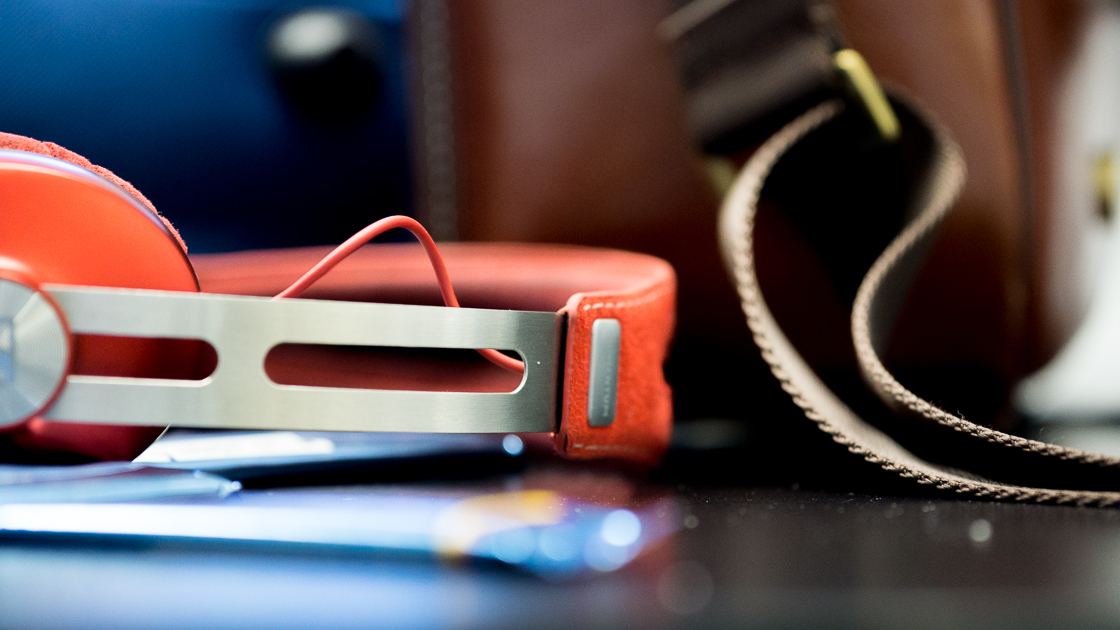Ways to "Practice" Without Opening the Case
by Jenny Maclay
Date Posted: July 24, 2017

Hear me out – there is much more to practicing than the act of physically playing your instrument. Truthfully, it can be beneficial to take a break from practicing periodically to refresh your mind and body. And let’s be real – there are some days that practicing is just NOT going to happen, whether you’re tired or stressed from work/school or you’ve had a marathon day which leaves you in no mood to focus on finely-tuned details (pun intended). Which brings us here, to several suggestions I use when I’m taking a break from practicing. When you aren’t playing your instrument, there are many ways to better yourself as a musician, and you should take advantage of “off” days to improve these skills. Here are ways that I “practice” without actually playing clarinet:
Listen to recordings.
- This is great to learn new pieces you are working on and to get musical ideas from several interpretations. Whether you want to listen to pieces in your current repertoire or pieces you would like to know better, this is always a great option to expand your musical horizons. And the interesting thing about this is that there are always new pieces, performances, composers, and recordings to be discovered. Let’s say you’re working on the Schumann “Fantasy Pieces” – listening to this one piece is fine, but by listening to Schumann’s symphonies, song cycles, chamber music, and other works you will have a more comprehensive understanding of the composer, which will help you better perform the “Fantasy Pieces.” Also, check to see if there are adaptations of your music for other instruments (for example, the “Fantasy Pieces” is often performed on cello). And with sites like YouTube, there are no excuses not to find incredible recordings.
Score study.
- Quite simply – study the score! Have your pencil handy and write in fingerings, breath marks, accidentals, key signature changes, entrances, rhythm breakdowns, etc in your part. Don’t limit yourself to only your music – study the piano part, orchestral accompaniment, or all of the instrumental parts in the score. Study the score and learn each instrument’s part to see how they relate to your own and the piece as a whole.
Work on reeds.
- Go through your reeds to discard any that are old, blown out, or don’t respond well. If you are incorporating new reeds, break them in or adjust according to your preferred method (breaking in reeds is a different topic for a different day). I realize you might have to open the case to try your reeds, but you’re technically not practicing, so allow me some leeway on this one.
Research performance or teaching opportunities.
- Look up summer festivals, concerts, competitions, or camps to attend. Not only will you learn about the many events which are available, but planning to audition for some of these will motivate you and can give your practice a clear goal to achieve.
Critique your past performances.
- This one’s tough – I don’t know any musician who can listen to past performances and not find a million and one details to improve. Although this is hard on the self-esteem, it can be very beneficial to listen to several past recordings to look for patterns. An errant squeak is mortifying, but consistently missing rhythms, running out of breath, playing out of tune, or other common thread is the result of a deeper issue. Find your weaknesses and make a plan to improve them.
Watch masterclasses and lectures online.
- Why pay thousands of dollars to travel the world attending conferences for the masterclasses of renowned artists when you can do it for free from the privacy of your home? There are so many masterclasses from which you can learn online; don’t limit yourself to your instrument. While semantics differ from instrument to instrument, music is universal. In addition to masterclasses, listen to lectures as well. My favorite is Leonard Bernstein’s “Norton Lectures” which can be viewed here.
Play some metronome games.
- I guess these “games” aren’t as fun as video games, but they improve rhythm a lot more effectively. Take a metronome and set it to a slower tempo (60 is an excellent starting point) and count subdivisions out loud. For example, there are two eighth notes in a beat, so you would say “One two/one two/one two……” Triplets would be “one two three” etc etc. You can go beyond four (which includes quintuplets, sextuplets, so on and so forth), but these are trickier to do at a faster speed. The goal of this is not to get you tongue-tied (although that is a common result), but to focus on inner rhythm and precision. This is also a great game to use for your students.
Have your instrument adjusted by a repair technician.
- Just like scheduling doctor appointments for yourself, it’s very easy to “forget” to schedule regular instrument maintenance sessions. Take your instrument to a trusted repair shop (or repair it yourself if you know what you’re doing). I always like to watch and ask questions as my instrument is being worked on to learn more about the process. You can pick up many tricks from your local repair tech!
Find out more on www.jennyclarinet.com
We'd love to hear more comments from you about how you practice without your horns in the comments box below!

About the Author
Dr. Jenny Maclay enjoys a diverse career as a clarinet soloist, recitalist, orchestral player, chamber musician, pedagogue, and blogger. In 2021, she was the Visiting Instructor of Clarinet at Brandon University (Canada) and was Visiting Lecturer of Clarinet at Iowa State University in 2020. Online, she is known as Jenny Clarinet, where she created her eponymous popular blog, and she is also the Social Media Coordinator for the International Clarinet Association.
In addition to teaching and performing, Jenny is also interested in travelling and researching clarinet cultures around the world. To date, she has visited and performed in over 30 countries, and she enjoys meeting other clarinetists during her travels. Recently, she was selected by the Council of Faroese Artists as an artist-in-residence in Tjørnuvík, Faroe Islands, where she performed and promoted clarinet compositions by Faroese composers. She has also been named an Artist-in-Residence Niederösterreich, and she will study the clarinet compositions of Ernst Krenek and his wife Gladys Nordenstrom during her residency in Austria in 2022.
Jenny was the recipient of the 2015-2016 Harriet Hale Woolley Award for musical study in Paris, where she was an artist-in-residence at the Fondation des Etats-Unis. She received her Master of Musique, interprétation, et patrimoine at the Versailles Conservatoire in the class of Philippe Cuper and her Doctorat en musique interprétation at the Université de Montréal in the class of André Moisan. She has achieved a number of other notable musical honors, including selection as a prizewinner, finalist, and semi-finalist for such international competitions as Concerts Artists Guild and Astral Artists, and other recent prizes include 1st prize at the 2017 Clé d’Or international music competition and highest-ranking clarinetist at the 2016 Tunbridge Wells International Young Artist Competition in England. Most recently, Jenny performed a virtual recital at the International Clarinet Association’s ClarinetFest 2021, featuring a transcription of Brahms’ Zwei Gesänge, Op. 91 for clarinet, theremin, and piano. Other recent performances include a virtual recital for the U.S. Embassy France and a collaborative duo recital with Sauro Berti, solo bass clarinetist of Teatro dell’Opera di Roma at ClarinetFest 2019.
Jenny has performed with orchestras throughout Europe and North America. In 2017, she toured with the Jeune Philharmonie franco-allemande et hongroise, an international orchestra comprised of musicians from over 20 different countries. During past seasons, she has performed with several orchestras, including the Ensemble Orchestral Les Voyages Extraordinaires, Écoute Ensemble de Musique Contemporaine, Orchestre d’Harmonie de Levallois, Florida Orchestra, Valdosta Symphony, and Ocala Symphony. As a chamber musician, she has performed several masterworks in prestigious venues, including the Mozart clarinet quintet at La Seine Musicale and the Messiaen Quatuor pour la fin du temps at the Fondation des Etats-Unis in Paris.
Jenny received her Bachelor of Music Degree in Clarinet Performance from the University of Florida, where she graduated summa cum laude and was a Fulbright Scholar alternate. Her teachers include Philippe Cuper, Karl Leister, André Moisan, Mitchell Estrin, Todd Waldecker, John Cooper, and Donald Dowdy. She was the youngest presenter of refereed research at the 2014 International Clarinet Association ClarinetFest. Recently, Jenny has been an invited artist and presented lectures on musicpreneurship at Louisiana State University, University of Memphis, University of Iowa, Loyola University, Millikin University, Middle Tennessee State University, University of Alabama Birmingham, University of Central Florida, University of South Florida, University of Southern Mississippi, and has been a featured soloist at the keynote ceremony of the Alabama Music Educators Association Conference.
Jenny Clarinet has been featured in The Clarinet and the Clarineat podcast and has been named one of Feedspot’s “Top 20 Clarinet Blogs, Websites, and Influencers to Follow.” To date, she has published over 300 articles which have been read in over 177 countries and translated into multiple languages, and she has contributed articles which have been featured in The Clarinet, Vandoren WAVE newsletter, Deutsche Klarinetten-Gesellschaft, Rodriguez Musical Services blog, and Lisa’s Clarinet Shop blog. Her first book, an examination of unaccompanied clarinet repertoire, is currently in publication. Jenny Maclay performs exclusively on Vandoren reeds, mouthpieces, and ligatures.
In addition to clarinet, Jenny is also learning to play the theremin, an early electronic instrument and the only one played without physical contact. After writing this blog post, Jenny became interested in the theremin and has collaborated and performed with theremin virtuosi Grégoire Blanc and Charlie Draper. You can listen to some of these collaborations here and here.
When she’s not onstage or in a practice room, Jenny enjoys travelling and has visited over 30 countries. During her travels, she likes to befriend the local cats and enjoys reading books at kitschy cafés. Her caffeination of choice is espresso or Earl Grey tea.